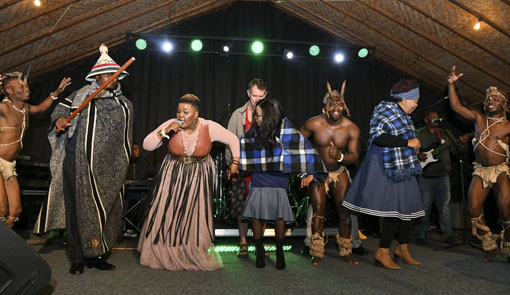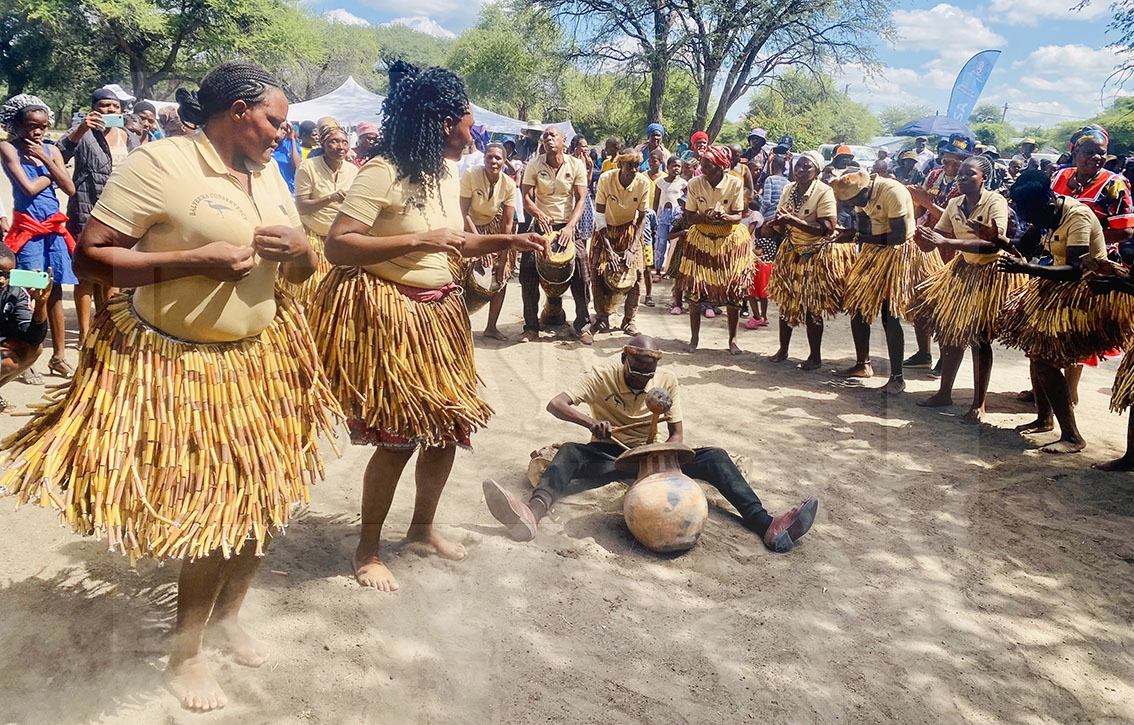Delegates samples Setswana culture
30 Jun 2022
The enchanting vocals of experienced female vocalist Maxy KhoiSan and the similarly named young Khoisan vocal duo, plus traditional Tswana cuisine on offer gave delegates at the Southern African Customs Union (SACU) Council of Ministers a feel of Botswana culture on Tuesday night.
During the welcome reception at BotswanaCraft in Gaborone, Minister of Finance Ms Peggy Serame said as host of the 47th meeting of the SACU Council of Ministers and 7th Summit, Botswana had purposely organised the reception with a Setswana theme to offer visiting delegations a cultural palate of the host nation.
The reception was attended by delegates from the SACU member states of Botswana, South Africa, Namibia, Lesotho and Eswatini.
She urged attendees for this week’s events to work together for the common good of the union. The events were preceded by a meeting of the SACU Finance and Audit Committee and SACU Commission last week and would culminate with a Summit of the heads of state and government on today.
Maxy belted out popular music from her 20-year catalogue of music that is well known to Botswana music lovers, and at the minister’s behest, repeated her rendition of the patriotic composition Re Batswana.
As Khoisan also added their own new hits such as Marabele, to the night’s soundtrack, delegates were served a traditional palate including national dishes such as Bogobe le Seswaa, Mosutlhwane, Morogo wa Dinawa and other local foods.
Hosted by Botswana this week, SACU is the oldest existing customs union in the world. It was first established in 1910 when the newly configured Union of South Africa, worked with the British High Commission territories- Bechuanaland Protectorate (Botswana), Basutoland (Lesotho) and Swaziland (Eswatini) to form the Customs Union Agreement.
After the High Commission Territories gained independence in the mid-1960s, the Customs Union Agreement was updated, and renamed the Southern African Customs Union in 1969, with the now Republic of South Africa, Botswana, Lesotho and Swaziland remaining the core members.
Namibia formally joined as the fifth member after independence from South Africa in 1990 but had effectively been a part of the union a century earlier, following the League of Nations mandate to annex the territory then known as South West African from German control, handing it over to South Africa, in the aftermath of World War I.
Historically, through the 1910 and 1969 agreements, SACU was administered by South Africa, but with the apartheid state paving way for democratic government in 1994, and the formal establishment of diplomatic relations with her neighbours, efforts were made to reform SACU.
Finance and Trade ministers of the five states met between 1994 and the year 2000 to discuss such reform. That led to a Secretariat being established in Windhoek, Namibia for day-to-day administrative purposes; a Council of Ministers that meets quarterly; the Commission, an administrative body of senior officials; plus a Tribunal made up of an independent body of experts reporting to the Council.
The union works to maintain free interchange of goods and services within member states, common external tariff on imports from third parties as well as revenue sharing on imports and excise duties plus harmonized customs policies.
With revenue share being proportional to the size of the economy, and South Africa accounting for by far the largest share of the SACU gross domestic product (GDP), there has been concern raised from other member states that South Africa continues to enjoy a much larger proportion of the revenue sharing formula. ENDS
Source : BOPA
Author : Pako Lebanna
Location : GABORONE
Event : Food Festival
Date : 30 Jun 2022







